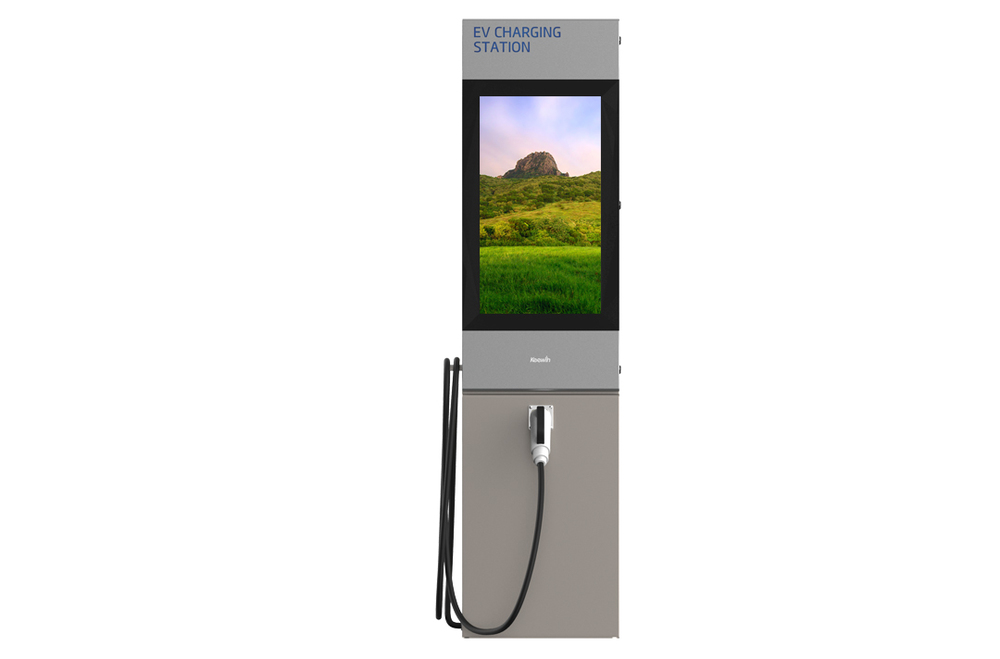
Georgia is a state that is very popular for its manufacturing activities. In fact, Georgia has the second-highest number of electric vehicles on the road. This is due partly to the state's electric car tax credit.
Georgians can take advantage the tax credit that allowed them to switch to electric vehicles. The credit can only be used to purchase electric cars. The credit amount will depend on the vehicle's batteries capacity. A credit of $7500 might be available for cars with a maximum capacity of 240kWh.
The federal government offers an electric vehicle tax credit. This credit is only applicable to electric vehicles manufactured in North America. It has a phaseout. This means that a manufacturer must sell 200,000 eligible AEVs and PHEVs to be eligible for the tax credit.

Clean energy is also eligible for rebates under the Inflation Reduction Act of 2009. These incentives can either be claimed for new or second-hand EVs. These credits will cease to be available in 2020. Many lawmakers have submitted bills that would eliminate the state tax credit. Rep. Chuck Martin proposed this bill.
Some legislators were concerned the state was spending too many money on tax credits. A bill was created to eliminate the incentive by 2020. Another legislator introduced a bill which would have extended the tax credit. The bill was saved by state legislators in the final hours of the 2014 session.
Hyundai opened the first American EV factory west of Savannah in Bryan County. This was announced by Hyundai in January. The company expects to produce 300,000. The plant will be home to 8,100 employees. Michael Stewart, a company spokesperson, stated that the company was disappointed by the reduction in the tax credit. The company is looking for a solution with both the U.S. Department of Transportation (DOT) and the federal government.
The federal government made several modifications to the EV tax credit. The new regulations require strict battery sourcing. The Department of Transportation has provided a tool that can help determine whether an EV is eligible for the credit.

Some manufacturers may not be able to meet these requirements. Rivian, an electric car manufacturer based in California, has seen a decline of 80 percent in its sales. Rivian is also at risk of losing customers who are eligible to receive the tax credit. In an effort to recoup lost revenue, the company is seeking to lower the price of its cars.
In addition to the credit, the state of Georgia has a rebate program. These programs are designed to give Georgians an incentive for converting to a cleaner, more environmentally-friendly alternative. The rebates are available for the purchase of a new light-duty alternative-fuel vehicle, such as a hydrogen fuel cell electric vehicle, an electric vehicle powered by a battery, or a plug-in hybrid electric vehicle.
FAQ
What are the different types of jobs available in car mechanic?
Three main areas of employment are available for car mechanics:
-
Automotive repair shops
-
Dealerships
-
Independent garages
Automotive repair shops
This is where most people consider becoming a mechanic. It's also the easiest way you can get started. You have two options: work in an existing shop or open your own.
You will need to join a union if you want to work in a shop. After being accepted into the union, the union will provide training.
You'll be ready for work once you have completed the training.
If you decide to open your own garage, you'll need to register with the government. Once you have registered, certain standards will be enforced.
After you have registered, you will be issued a license to operate your garage.
Your license will permit you to sell spares parts and perform minor repairs. It will not permit you to fix major engine issues.
Customers will expect you to not only sell spare parts but also provide advice and guidance.
Dealership jobs
Most dealerships employ mechanics that specialize in one aspect of the vehicle. They may be trained to replace or repair tires, or they may specialize in brakes.
Some dealerships have the option to hire general mechanics who can take care of all aspects.
These positions often require applicants to undergo specific training before being allowed to work. Employers are able to choose which candidates will best suit their position.
Some dealerships even recruit graduates straight from university. These graduates already know the basics of mechanical engineering and therefore have no problem learning about cars.
Independent garages
Independent garages don't belong to any particular dealership. Instead, they focus on high-quality customer service.
Because independent garages aren't affiliated with any company, they can afford to pay higher wages. These jobs generally pay better than those at dealerships.
Independent garages can be just as good places to work, but this does not mean they are better. Many business owners prefer to own their businesses and not delegate the responsibility to others.
So you may find yourself working long hours without having any say over what happens during the day.
You should also expect to earn lower wages than if you were employed at a dealership.
The good news is that you can easily switch between different kinds of jobs. You can switch jobs easily if you are interested in working at a dealership. Simply ask your employer if they would be open to hiring you as a mechanic.
Alternatively, if you'd like to work at an independent garage, then you could try applying directly to the owner of the garage.
Finding a new job is not always easy. There are plenty of other factors that influence how much you earn.
You might also consider the vehicle type you repair, and whether extra labor is charged.
What can I do to fix my car as an hobby?
It's a great hobby to take on if you are passionate about cars. You could learn how to repair them, buy parts for them, sell them or just enjoy them. This would be a wonderful hobby if you're looking to find something completely different.
However, it's not easy to turn this into a full-time career. It takes a lot of dedication and hard work. And you'll need to invest a lot of money too.
So unless you have a good reason for wanting to get involved with cars, then it might be best to leave it alone.
Are you looking for a career as an automotive mechanic?
The automotive industry is full of exciting opportunities for those who are dedicated to excellence. It is important to work hard and learn as much from others as you can in order to succeed in this industry.
Because you will be spending most of your time communicating with customers and employees, you will need excellent communication skills. It is important that you are willing to travel, work long hours and be able to commute.
If you are interested in a career working in automotive, then consider attending classes at community colleges. Many schools offer programs specifically designed for students interested in auto repair, sales, or customer service.
If you decide to pursue a degree, you should study mechanical engineering. You can earn a bachelor's in as little four years.
Many employers will hire graduates straight out from school. So, it is wise to begin searching for employment while you are still able to study part time.
After you have completed your education, you will likely need some training to be able to work as an automotive technician.
This means you'll need to pass exams such as the Automotive Service Excellence (ASE) certification exam. This test covers engine maintenance and brakes as well as suspension.
Once you pass the ASE test, your license can be applied for by the National Institute for Automotive Service Excellence.
A license permits you to repair private vehicles. You will be compensated based on how many services you performed.
It is important to remember that not all states require licensing. A license is required if you plan on working outside of your home state.
Some states don't issue licenses until after completing a certain amount of training. If this applies to you, then you may need to find another option.
What length is an automotive mechanic apprenticeship?
A three-year apprenticeship in automotive mechanics takes. This includes two years at school and two years working as an apprentice. The first year teaches you all aspects, from theory to practical skills and safety procedures. During this time, you'll also learn how to use tools safely and efficiently. You'll spend the second year in on-the-job training, where you will gain experience in various trades. You will have the opportunity for formal training during these years.
The last year of your program will be spent earning qualifications and becoming certified. These include NVQs, which are obtained after passing industry-specific exams. You can also get HNCs (Higher National Certificates), that cover subjects such as customer service, business administration, management, and business administration. City & Guilds certificates can be obtained for individuals who want to learn certain trades.
What are the requirements for an automobile technician?
You must have high school, or GED, and be able to read and write well in English and math. Additionally, you will need to be proficient in reading and writing. After passing a written test, you will need to complete a series of practical tests before you are allowed to begin working.
Statistics
- The U.S. Bureau of Labor Statistics (BLS) reports that the job outlook for automotive service technicians and mechanics is expected to decline by 4% from 2019 to 2029. (indeed.com)
- According to the BLS, total auto technician employment is expected to exceed 705,000 by 2030. (uti.edu)
- 52% of Mechanics in the United States think their salaries are enough for the cost of living in their area. (indeed.com)
External Links
How To
How to properly diagnose your vehicle for repair
To determine if your car needs repairs, you should first look at the symptoms that your car presents. Follow these steps to properly diagnose your vehicle.
-
Check engine lights. The dashboard light indicators, including the engine light, oil pressure gauge, battery light indicator, coolant temperature gauge and RPM gauge, should be checked. If they have been flashing for more days than usual, it could be a sign that something is wrong with the vehicle.
-
Examine the treads of the tires. Tires that are worn can cause issues with handling and braking. You should inspect the treads on your wheel. They should be clean, and they should be smooth. This can be done by removing the wheels from the vehicle and taking them off. To check the condition of your treads, use a flashlight.
-
Check the level of brake fluid. You must keep track on the level of brake fluid in your vehicle. This ensures that your brakes work properly. If the brake fluid level is low, your brakes might fail when you apply pressure to them.
-
Make sure to test the suspension system. Vehicles usually have a suspension system that helps absorb shocks and vibrations while driving. It provides better control and allows smoother acceleration and deceleration. Your vehicle might feel wobbly, or shake uncontrollably if it has a bad suspension. You can test if your vehicle has a suspension problem by putting weight on either the front or back axle to see how it moves.
-
Examine your steering column. Steering columns are used to connect the steering wheel to the rest of the vehicle's components. Steering columns can be damaged by accidents. You should replace your steering column if it feels loose or unstable.
-
Observe the exhaust pipe. Exhaust pipes move gases from combustion chamber to atmosphere. Your cabin will be effected if your exhaust pipe cracks or leaks. You should also fix any bent tailpipes immediately.
-
Look under the hood. Check under your hood for any unusual or missing components. Leakage of fluids in your engine could indicate that it is leaking. You should also contact a professional technician if there is an unusual odor coming from the engine compartment.
-
Make sure to check the air filter. The air filter in your vehicle collects dirt and dust from the environment. A dirty filter can lead to a poor vehicle's performance. Replace your air filter regularly.
-
Check the fan belt. The fan belt that connects your vehicle to the transmission is called the engine fan belt. If the fanbel breaks, your engine won't turn. It is easy to replace the belt. You only need a screwdriver or pliers to replace your belt.
-
You should inspect the radiator and hoses. The radiatorhose carries water from your radiator to the engine. If it becomes cracked or damaged, it can leak hot liquid onto the engine. To repair the hose, you will only need to use a pair needle-nosepliers and a wire brush.
-
Make sure you have the windshield wipers checked. Windshield wipers use electricity to wipe away rain and snow. If they stop functioning, they can leave streaks in your window glass. The solution is to change the washer fluid.
-
You should inspect the cables. Batteries provide power to electrical systems inside your car. Always disconnect the negative wire before you replace batteries. Failure to do so can damage your alternator.
-
Be sure to check your headlights. The headlights will illuminate the road ahead. They can make it difficult to see if they stop working. You can check the bulbs to make sure they aren't burned out.
-
Check the lights. You can warn other drivers if you approach them at night. You could be distracted and cause an accident if one does not work.
-
Make sure you check your brakes. Before you collide with another vehicle, brakes will slow down the car. If your brakes aren't working properly, you may lose control and crash into other cars.
-
Change the oil. Oil keeps your engine lubricated. It protects metal parts and prevents them from wearing too quickly. It is recommended that the oil be changed every other month.